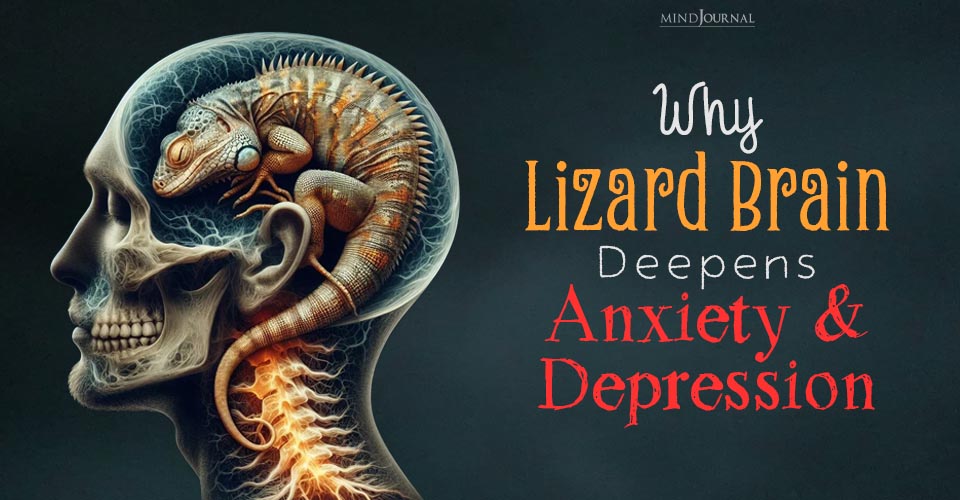As someone who struggled to recognize negative thinking in myself, it took some time to understand I was doing it as a self-defense mechanism. I felt like I “had to” think negatively to keep myself safe. After a series of negative consequences, I discovered three easy steps to help stop negative thinking.
Negativity is not just in your thinking but also in your bad habits. It is also the words and vibes of others that you absorb. Unfortunately, we do not always have a way out of it.
3 Actionable Hacks To Stop Negative Thinking
Understanding the “why” behind your actions, responses, reactions, and behavior is necessary for your well-being. Negativity can sometimes come from our incorrect way of dealing with situations more than the situation itself. These 3 hacks are worth trying.
Here are 3 science-backed steps to stop negative thinking:
1. Choose an alternative for complaints

Studies suggest that habitual complaining can adversely affect the hippocampus part of the brain responsible for thinking and intelligence. Besides, this will induce negative and intrusive thought patterns in you.
But problems also need to be addressed. You can focus on the roots and try to solve the problem. Most often, instead of expressing our feelings, we accuse others of making us feel that way. It does not give you the clarity you need.
2. Embrace gratitude

Are you aware of the suggestions of Martin Seligman, the father of positive psychology?
You can try his “3 blessings” exercise. You reflect on three positive events in your life on that day and write them down. Practicing regularly can help you reduce stress and also lessen the chances of depression.
As a modification, you can keep a journal of good and positive events in your life.
But that does not mean you need to think positively about something unfair and unjust. You must ponder on such matters, just not in a way that makes you drained, exhausted, stressed, angry, and depressed. It can have a long-term impact on your physical health.
3. Master self-regulation
Are we capable of triggering ourselves or does it always have to be external stimuli?
I realized that I could trigger myself. Perceptions were the reason.
The other day, I was at the ATM to withdraw cash. A person waiting outside was not okay with the extra 5 minutes I was inside. He behaved rudely to the point where he came inside and asked me to leave by calling me inconsiderate.
I was angry and disgusted and the negative feeling lingered for that entire day until I saw him again in a pharmacy, asking people to make haste as he had a medical emergency in his family.
If I had considered a different narrative, I would not have felt angry and disgusted for the rest of my day that interfered with my work and mental peace.
So, the key to mastering self-regulation is to consider that your assumptions can be untrue, and there is more than what meets the eye!
Related: Toxic Thinking: How They Drain Your Energy and 10 Ways to Reclaim Your Power
What Causes Negative Thinking?
I could find these 3 hacks only after I reflected on the reasons behind my negative thinking. I found these reasons to be common problems in most people suffering from negative and intrusive thought patterns:
1. Catastrophizing causes negative thought patterns
Catastrophizing is considering the worst outcome in any given situation.
But why will anyone do it? I can tell you why I did it.
I would think about the worst-case scenario to be prepared for any sudden shock in the future.

Generally, it comes from the fear of uncertainty. It destroys the very future you are worried about.
When you think about the worst possible outcome, your reactions depend on it, and by all means you can mess up a good opportunity just because you assumed it to be catastrophic.
Catastrophizing leads to repetitive negative thought patterns that affect your quality of life.
2. Rumination about past- events causes overthinking

We all have our baggage. There can be events in the past that shocked you to the core and broke your faith in humanity. I realized that these events actually broke the trust I had in myself. I was scared to figure out that I could not understand what was right for me.
You are not sure whether you can spot who is a red flag or a green flag, leading to indecisiveness out of fear of being wronged.
You ruminate about past events to analyze points you should look out for. But this leads to overthinking and exhaustion.
Related: How Rigid Thinking And Rumination Undermines Your Health And Life
3. Self-loathing causes negative thought patterns
I always wondered why certain people loathe themselves. Self-loathing leads to depression.
I got the answer through experience and understood that admitting “I am not good enough for this”! Is an escape from changing yourself for the better or a fear of failing.
The ego gets hurt when we see ourselves changing for others. We do not want that change and desperately avoid such conversations or admit “We are not good enough” to avoid making efforts in the future.
Another perspective is to avoid seeing yourself fail because you destroyed your self-confidence. Self-confidence is something you need to practice every day.
Otherwise, It will affect your future. It is not possible to be good enough for everything, but it is always possible to give your best.
Takeaway
We are the stories we connect to, but we are also the stories we avoid. Everyone wishes to stop negative thinking but fails because they lack introspection and self-reflection. If you do it, you can find better hacks than I did.
Frequently Asked Questions (FAQs)
Why is it important to stop negative thinking?
It is important because negative thinking will break your focus, concentration and self-confidence.
How to stop negative thinking?
You can try not to jump to conclusions based on assumptions, try to spot and break rigidity in your though patterns and indulge in self-love!
What is the cause of negative thinking?
Stress, anxiety and trauma are the main reasons behind negative thinking.
How to stay positive?
Believe in your capabilities, develop skills you want in yourself, practice positive self-talk and follow a healthy lifestyle.










Leave a Reply